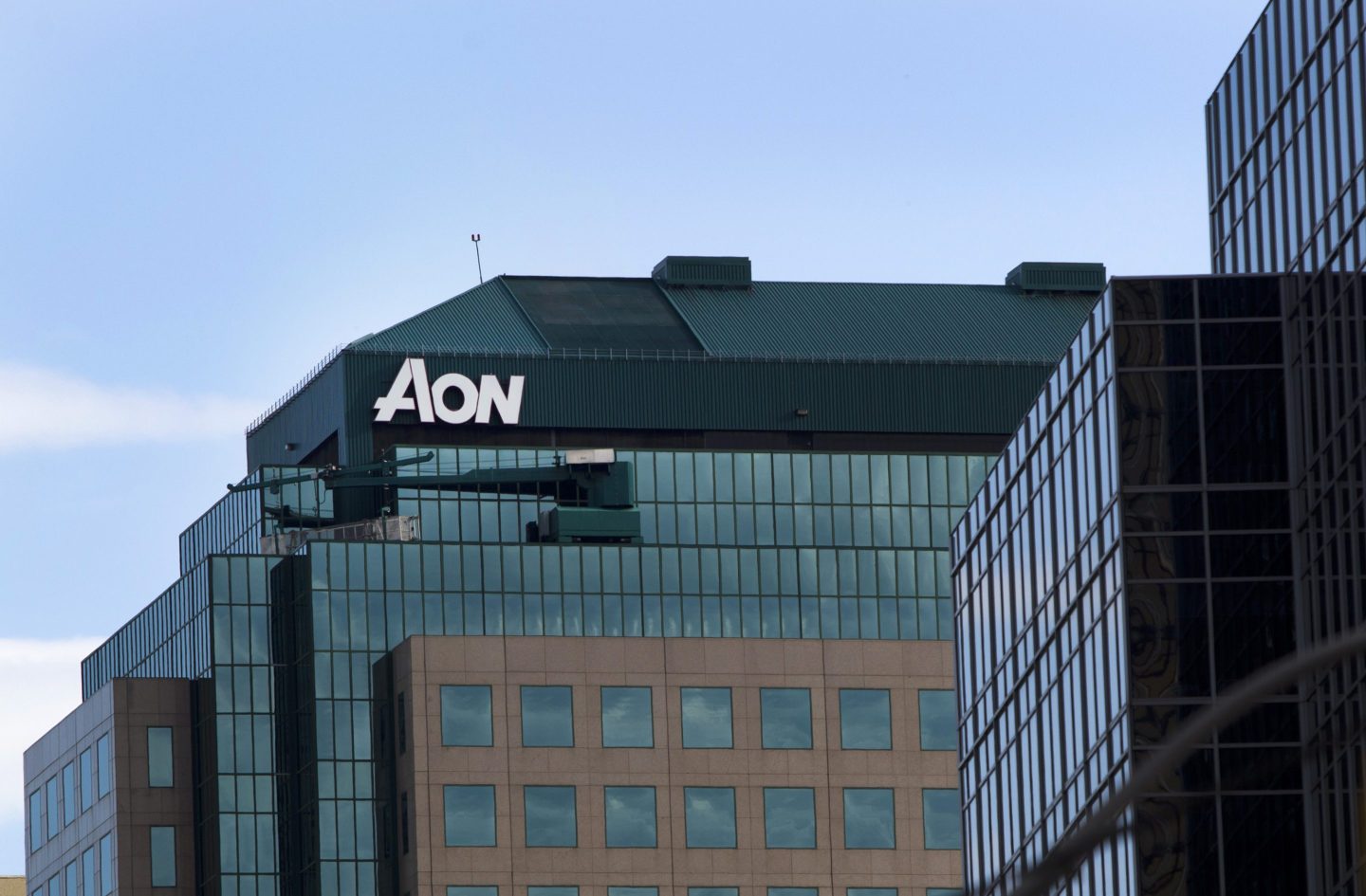Good morning. Aon, the $80 billion global professional services firm and insurance broker, is accelerating its growth strategy and redefining its role in the industry. At the center is a focus on technology-enabled, client-centric solutions, according to CFO Edmund Reese.
For the first time in two decades, Aon hosted an investor day on Monday. “We have something unique and differentiated, and in fact, it is very important for the insurance industry—risk capital management and human capital solutions,” Reese told me. “We think that’s what more senior executive clients are looking for.”
Aon CEO Greg Case, Reese and Aon’s executive committee have been spearheading a three-year, client-centric “3×3 Plan,” supported by the company’s $1 billion investment in talent and technology, to be completed by 2026. Over the past 10 years, Aon has outpaced the S&P 500, returning about 15% annually, Reese said.
“There’s a macroeconomic cycle about every 10 years, and you have to be able to win both when it’s depressed and when it’s elevated,” he said. Aon has to do that for its clients and itself.
‘Refine our story’
It was time to tell the company’s story externally, Reese said. Modern CFOs have the task of crafting compelling narratives that explain the story behind the numbers, making complex information accessible and relevant to a wide range of stakeholders.
“When we decided to hold an investor day, I told the eight members of the executive leadership team to expect about 49 meetings in preparation,” Reese said.
The team told the board that after 15 years of implementing the Aon United strategy, the company has been accelerating growth through the 3×3 Plan, which is now halfway complete. Aon used the event to provide an update on its progress and set the stage for its long-term vision. “This process is helping us refine our story, so it resonates clearly with all stakeholders—employees, clients, and shareholders,” Reese said.
Aon isn’t your grandfather’s insurance broker. Instead of only talking to risk strategy managers, the company now engages with CHROs, CFOs, and, in some cases, boards, explaining how trends are connected, Reese said. One of Aon’s key roles is to provide AI-enhanced data to better understand risk and match capital to that risk, he said.
Take weather-related events, for example. If a hurricane hits and a company doesn’t have full insurance, it absorbs the losses in its own P&L. Companies are now looking for other sources of capital to offload some of that risk at an economically attractive cost, Reese explained. In such cases, Aon’s solutions go beyond property insurance—they might include benefits for employees, such as direct payments if a hurricane destroys an office for more than 10 weeks.
In the first quarter of 2025, Aon’s total revenue increased 16% year over year to $4.7 billion, with organic revenue growth of 5%, and the company completed seven acquisitions. Aon also reaffirmed its guidance.
Earlier this year, I talked with Reese about corporate trends. Now, I asked him what companies are increasingly asking Aon for help with—navigating trade policy uncertainty and tariffs, and seeking advice on issues ranging from political risk insurance to supply chain restructuring, he told me.
Companies in retail and other supply chain–focused industries are “where we’re seeing pressures,” Reese said.
Sheryl Estrada
sheryl.estrada@fortune.com
Leaderboard
Chris Monroe, CFO of Texas Roadhouse, Inc. since 2023, (NasdaqGS: TXRH), has left the company. Keith Humpich, VP of finance, was appointed interim CFO until a permanent successor has been identified. Humpich has more than 30 years of accounting, audit, and finance experience. He joined Texas Roadhouse in February 2005 as the director and then senior director of internal audit.
Robert (“Bobby”) Leibrock was appointed CFO of ACI Worldwide (Nasdaq: ACIW), a global payments technology provider, effective July 1. Leibrock succeeds Scott Behrens, who is retiring following a career spanning nearly two decades at ACI. Leibrock joins ACI from Red Hat, Inc., where he currently serves as SVP, chief operating officer and CFO. He previously held senior finance roles at IBM.
Big Deal
A new report by S&P Global Market Intelligence finds global private equity and venture capital deal value dropped 33.7% in May, falling to $51.79 billion from $78.14 billion a year earlier. The number of deals also declined, with 889 transactions compared to 1,087 in May 2024.
Despite the monthly decline, the year-to-date deal value rose to $330.25 billion, up from $276.85 billion in the first four months of 2024, according to the report. However, the total number of deals decreased to 5,048 from 5,434 over the same period last year.
The technology, media and telecommunications sector saw the most deal activity in May, with 302 private equity-backed announced transactions.
Going deeper
“A growing number of Fortune 500 companies are pursuing ‘blockchain initiatives’ as crypto goes mainstream,” is a new Fortune report by Catherine McGrath.
From the report: “Around 60% of Fortune 500 executives say their companies are working on blockchain initiatives, according to a new survey published by crypto exchange Coinbase on Tuesday, in partnership with GLG Research. That’s a 4% increase from last year. Many of these crypto projects are related to the use of blockchain technology for payments and settlements, supply-chain management, and blockchain infrastructure.”
Overheard
“I regret some of my posts about President Donald Trump last week. They went too far.”
—Tesla CEO Elon Musk posted on X early Wednesday morning. Musk, after weeks of publicly criticizing Trump—including calling for his impeachment and denouncing a key spending bill—has abruptly walked back his attacks. This rare reversal appears driven by the potential impact on Musk’s business interests and his long-standing, if now strained, relationship with Trump, Fortune reported.













